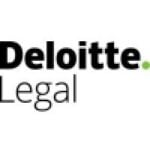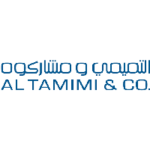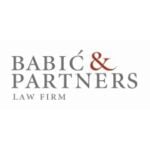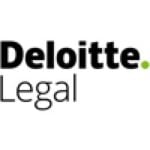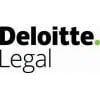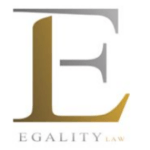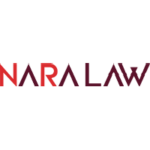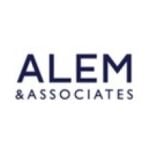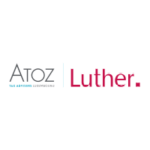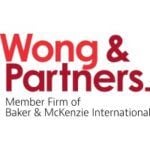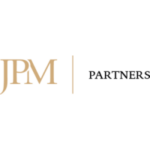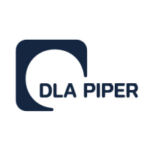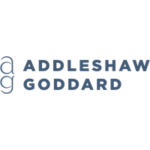-
Is the system of law in your jurisdiction based on civil law, common law or something else?
Norway is a civil law country.
-
What are the different types of vehicle / legal forms through which people carry on business in your jurisdiction?
- Private limited liability companies (No. ‘aksjeselskap’, abbreviation “AS”), regulated by the Norwegian Private Limited Liability Companies Act;
- Public limited liability companies (No. ‘allmennaksjeselskap’, abbreviation “ASA”), regulated by the Norwegian Public Limited Liability Companies Act;
- Companies with liability (abbreviations «ANS» or «DA»), regulated by the Norwegian act of 21 June 1985 no. 83;
- Limited partnerships (No. ‘kommandittselskap’, abbreviation “KS”), regulated by the Norwegian act of 21 June 1985 no. 83;
- Co-operatives (No. ‘samvirkeforetak’, abbreviation “SA”), regulated by the Norwegian act of 29 June 2007 no. 81;
- A permanent establishment of a foreign entity (No. ‘Norsk avdeling av Utenlandsk Foretak’, abbreviation NUF) regulated in home jurisdiction and subject to registration in Norway in accordance with the Norwegian act of 21. June 1985 no 78
- Foundation (No. ‘Stiftelse’) regulated by the Norwegian act of 15 June 2001 no 59.
- Sole proprietorships (will not be further included in this overview)
-
Can non-domestic entities carry on business directly in your jurisdiction, i.e., without having to incorporate or register an entity?
A non-domestic entity carrying out a business in Norway would not necessarily have to incorporate a Norwegian legal entity but would have to register in the Norwegian Business Register as a NUF (see above), as well as for general business purposes such as tax purposes and employer status, and other regulatory purposes depending on the scope of the business.
-
Are there are any capital requirements to consider when establishing different entity types?
Public and private limited liability companies have requirements for minimum share capital amounts prescribed by law, and in addition requirements prescribed by law concerning the maintaining of proper levels of equity and liquidity. Also limited partnerships (“KS”) have requirements for a determined capital.
-
How are the different types of vehicle established in your jurisdiction? And which is the most common entity / branch for investors to utilise?
Both public and private limited liability companies, as well as co-operatives are established by a memorandum of incorporation including a minimum set of articles of association, to be filed with the Norwegian Register of Business Enterprises, together with necessary confirmations of share capital insertion from a body with the legal authority to confirm.
Companies with liability (ANS and DA) and limited partnerships (KS) are established by entering into a company agreement, also to be filed with the Norwegian Register of Business Enterprises.
-
How is the entity operated and managed, i.e., directors, officers or others? And how do they make decisions?
Public and private limited liability companies are required to have a board of directors. For public limited liability companies, the minimum number of required board members is three (five if the company has a corporate assembly as defined in the public limited liability companies act). The minimum number of required board members for private limited liability companies is one (five if the company has a corporate assembly as defined in the private limited liability companies act). The board of directors has the responsibility for administration and supervision of the company and passes its resolutions in meetings unless the chair of the board finds that the matter may be submitted in writing or handled in another manner. There is a requirement pursuant to the public and private limited liability companies acts that the procedure must be adequate.
Public limited liability companies are required to appoint a general manager, while private limited liability companies may appoint a general manager.
-
Are there general requirements or restrictions relating to the appointment of (a) authorised representatives / directors or (b) shareholders, such as a requirement for a certain number, or local residency or nationality?
For public limited liability companies, the minimum number of required board members is three, while the minimum number of required board members for private limited liability companies is one (in both cases five if the company has a corporate assembly as defined in the public or private limited liability companies act, cf. above under question 6).
The general manager and at least half of the board members shall pursuant to the Norwegian Public Limited Liability Companies Act and the Norwegian Private Limited Liability Companies Act be resident in an EEA-state, the United Kingdom of Great Britain and Northern Ireland or Switzerland.
The employees of a public limited liability company or a private limited liability company may have the right to appoint board members if certain thresholds stipulated in the legislation are met.
In both private and public limited liability companies, there are also certain gender representation requirements.
-
Apart from the creation of an entity or establishment, what other possibilities are there for expanding business operations in your jurisdiction? Can one work with trade /commercial agents, resellers and are there any specific rules to be observed?
From a corporate law perspective, there are no restrictions in expanding business operations in Norway. Unless specifically noted in the articles of association, an entity or establishment is free to work with trade/commercial agents and resellers.
-
Are there any corporate governance codes or equivalent for privately owned companies or groups of companies? If so, please provide a summary of the main provisions and how they apply.
The Norwegian Corporate Governance Board (“NCGB” or “NUES”) issues the recommendation on corporate governance for Companies listed in Norway. For more information, please refer to English | NUES.
-
What are the options available when looking to provide the entity with working capital? i.e., capital injection, loans etc.
Share capital increases, potentially including share premium, are in private limited liability companies executed in accordance with Chapter 10 of the Norwegian Private Limited Liability Companies Act and may be made by way of, for example, a cash contribution. A resolution for a share capital increase by cash contribution shall be passed by the general meeting of the company following a proposal by the board of directors and requires a confirmation of received share deposit by an entity with authorization to make such confirmation and shall be registered in the Norwegian Register of Business Enterprises.
-
What are the processes for returning proceeds from entities? i.e., dividends, returns of capital, loans etc.
Dividends from a private limited liability company may be distributed if certain criteria stipulated by law are met based on the latest approved annual accounts, and extraordinary dividend may also be based on an interim balance provided certain requirements which are outlined in the Norwegian Private Limited Liability Companies Act are met. A general requirement that the company shall have a proper equity and liquidity following a dividend distribution also exists. Distribution of dividend is resolved by the general meeting following a proposal by the board of directors.
-
Are specific voting requirements / percentages required for specific decisions?
The general rule under the Norwegian Private Limited Liability Companies Act is that the general meeting passes resolutions by simple majority of the votes cast, provided that the Norwegian Private Limited Liability Companies Act does not stipulate otherwise. The Norwegian Private Limited Liability Companies Act requires that resolutions to amend the articles of association of the company requires a majority of two thirds of both the votes cast and the share capital represented at the general meeting. Further, the Norwegian Private Limited Liability Companies Act also contains regulations requiring that certain and specific types of resolutions require a qualified majority of the supporting vote of owners of shares comprising more than nine-tenths of the share capital represented at the general meeting and in addition a majority as required for amendments of the articles of association. Certain and specific types of resolutions may under the Norwegian Private Limited Liability Companies Act also require the majority of all shareholders.
-
Are shareholders authorised to issue binding instructions to the management? Are these rules the same for all entities? What are the consequences and limitations?
The shareholders of a private limited liability company pass their resolutions through the general meeting of the company which is the highest corporate body of the company. Outside the general meeting the shareholders do not have authorization in the company, and any instruction to the board of directors of the company must consequently be made through a resolution in the general meeting.
-
What are the core employment law protection rules in your country (e.g., discrimination, minimum wage, dismissal etc.)?
Right / Protection Details National Minimum Wage
In general, there are no minimum wage requirements set out in the Norwegian employment legislation. However, minimum wages have been introduced in certain sectors and employers in these sectors are required to pay minimum wages in accordance with general application of collective agreements.
Also, immigration legislation has minimum remuneration requirements in order to obtain resident and work permits in Norway.
Holiday
According to the Norwegian Holiday Act, employers are obliged to ensure that employees have 4 working weeks plus one working day of vacation every calendar year (holiday year). Employees with 6 days working week will be entitled to 25 vacation days, and employees with 5 days working week are entitled to 21 vacation days. All day’s count as working days except Sundays and public holidays. Employees over the age of 60 are entitled to one extra working week of holiday.
Employers subject to Collective Bargaining Agreements (CBA) are normally obliged to offer 4 or 5 additional working days as vacation, ending up with a total of 30 days of vacation for employees with 6 days ordinary working week and 25 days of vacation for employees with 5 days ordinary working week.
Holiday pay from the employer is calculated on the basis of remuneration paid in the calendar year preceding the holiday year. This means that holiday pay for holiday in year 2 is calculated on remuneration paid during calendar year 1. Holiday pay is calculated at the rate of 10,2% (if not subject to CBA) or 12 % (if subject to CBA).
Working Hours Breaks
As a main rule, the maximum working hours set out in the Norwegian Working Environment Act are nine hours a day, and 40 hours over a seven-day period. The working hours are, in practice, 7,5 hours. Exemptions can be made through CBA’s or based on application towards the Norwegian Labor Inspection Authority.
The employee shall have at least one break if the daily working hours exceed five and a half hours. The total break time shall be at least half an hour if the daily working hours are at least eight hours. If the employee is not free to leave the workplace during the break or if there are no adequate break rooms available, the break shall be considered part of the working hours. When an employee works more than two hours beyond the regular working hours, the employee shall be granted a break of at least half an hour. This break shall be considered part of the working hours.
Rest Periods As a main rule, employees are entitled to a minimum of 11 hours of rest during a 24-hour period, and 35 hours over a period of seven days.
Pension rights All employers, both Norwegian and foreign, are obliged to provide an occupational pension plan in accordance with the minimum requirements set out in the Mandatory Occupational Pension Act. Currently, the minimum is set to be a 2 % defined contribution plan. Discrimination Psychosocial Working Environment
The Equality and Anti-Discrimination Act promotes equality and prevents discrimination of i.e., gender, pregnancy, ethnicity, religion, disability, sexual orientation, gender identity, gender expression, age or other significant characteristics of a person. According to the Working Environment Act the work shall be arranged to preserve the employees’ integrity and dignity. Efforts shall be made to arrange the work to enable contact and communication with other employees of the undertaking. The employees shall not be subjected to harassment, including sexual harassment, or other improper conduct. Employees shall, as far as possible, be protected against violence, threats and undesirable strain as a result of contact with other persons.
Maternity Leave / Pay Parents are entitled to a period of leave corresponding with the period they receive maternity/paternity allowance from the National Insurance Scheme. In addition, each of the parents are allowed additional 12 months unpaid maternity/paternity leave immediately after the paid leave. After giving birth, the parents are entitled to a minimum of 12 months leave in total or for a longer period if the parents receives maternity/paternity allowances from the Norwegian National Insurance Scheme. The first 6 weeks after birth are reserved for the mother and the other parent is entitled to 2 weeks leave together with the mother immediately after the birth. In addition, the pregnant employee is entitled to leave of absence for up to 12 weeks during pregnancy. The maternity/paternity allowances are paid by the Norwegian National Insurance Scheme if various conditions are fulfilled, i.e. minimum working period of 6 of the 10 months before commencement of the maternity leave.
Paternity Leave In connection with the birth of a child, the father, co-mother or other person who assists the mother during the pregnancy is entitled to two weeks’ leave immediately after the birth. In addition, the parents can share the total period of 12 months leave except for 6 weeks after birth and 3 weeks during pregnancy, which are reserved for the mother. Shared Parental Leave If both parents fulfil the entitlements to maternity/paternity allowance from the National Scheme, the total leave can be shared between the parents. After birth, 15 weeks are reserved for the mother, 15 weeks are reserved for the father, and the remaining can be shared at their own choice. Statutory sick pay Employees can receive sickness benefits for a maximum of 52 weeks. This applies regardless of whether they are fully or partially on sick leave. The first 16 days are covered by employer, and the following are covered by the Norwegian National Insurance Scheme up to a maximum threshold of 6 times the Basic Amount. If the employee’s ordinary remuneration exceeds 6 times the Basic Amount, employers can decide to cover the amount exceeding the maximum payment from the Scheme and up to ordinary remuneration level.
To be entitled to sickness benefits in Norway, the employee must have performed work for at least four consecutive weeks before the employee is absent from work due to sickness.
Statutory Notice Periods The minimum notice period according to the Working Environment Act is one month and the maximum is six months, depending on age and seniority. The notice period runs from the first day of the month following the month the notice is given. During a 6 months probation period, the notice period can be set at 14 days. While ordinary notice periods commence the first day in the first month following a written notice, the notice period during a probation period commences the first day after the notice is given.
For an employee who has been continuously employed in the same company for at least 5 years at the time of dismissal, a mutual notice period of at least 2 months applies. If the employee has been employed for at least 10 years, the mutual notice period shall be at least 3 months.
If an employee is dismissed after at least 10 years of continuous employment in the same company, the notice period shall be at least 4 months if the dismissal occurs after the employee has turned 50 years old, 5 months after the employee has turned 55 years old and 6 months after the employee has turned 60 years old. The employee may resign with a notice period of at least 3 months.
Unfair dismissal A dismissal must be fair, which means there must be specific reasons for the dismissal. An ordinary dismissal must be based on circumstances related to the undertaking, the employer or the employee. A summary dismissal can be considered if the employee is guilty of a gross breach of duty or other serious breaches of the employment contract.
Employees are protected against unfair dismissal, such as dismissal due to illness, pregnancy, adoption, childbirth and military service, and in the case of an unfair dismissal, the employee may raise legal claim for compensation for economic and non-economic loss. In addition, the dismissal may be ruled invalid by the court.
Statutory Redundancy Payment There are no requirements related to statutory redundancy payment set out in the Norwegian employment legislation, but the employee is entitled to full remuneration throughout the notice period. The employee is also obliged to perform work through the notice period, but the employer and employee can agree that the employee’s obligation to perform work is waived while continuing to receive remuneration through the notice period. Statement of particulars The employee is entitled to receive an employment contract as soon as possible and within 7 days after the commencement date as a minimum. The contract shall fulfil the minimum requirements for an employment contract, where at least the following shall be included: the identities of the parties, commencement date (if the employment is of a temporary nature, its expected duration and the basis for the appointment), working and rest hours, compensation, holiday and holiday pay, place of work, position, notice and trial period and applicable collective bargaining agreements. The contracts shall also include information on the procedures for termination, arrangements for shift changes, arrangements for work beyond agreed working hours, including payment for such work, information on competence development rights offered by the employer and information on social security benefits provided by the employer. -
On what basis can an employee be dismissed in your country, what process must be followed and what are the associated costs? Does this differ for collective dismissals and if so, how?
A dismissal must be objectively justified based on circumstances which can be related to the undertaking, the employer or the employee.
Before termination of an employment contract, the employer shall arrange for a consultation meeting with the employee.
In the consultation meeting, the employer should explain the reasons for considering termination, and let the employee give his/her statement about these and other reasons why the termination should not be carried out. After the meeting, the employer must take into consideration what was said during the meeting before making a final decision regarding the termination.
The dismissal must be given in writing and shall include specific formalities and information. A dismissal which does not fulfill the specific requirements and formalities is not valid and may be considered as void.
The employer is obliged to offer other suitable work, including in other companies within the group, as an alternative to dismissal if the dismissal is due to circumstances related to the business.
An employee who has been dismissed due to circumstances related to the business has a preferential right to re-employment within the group, provided that the employee is qualified.
In the event of collective dismissals, the employer shall at the earliest opportunity enter consultations with the employees’ elected representatives with a view to reaching an agreement to avoid collective dismissals or to reduce the number of persons who will be dismissed. Further requirements related to the cause of the termination and formal requirements in the dismissal also apply in the event of collective dismissals. The employer considering collective dismissals shall, as early as possible and no later than when summoning for consultations, notify the Norwegian Labour and Welfare Organization.
-
Does your jurisdiction have a system of employee representation / participation (e.g., works councils, co-determined supervisory boards, trade unions etc.)? Are there entities which are exempt from the corresponding regulations?
The Companies Act of 13 June 1997, No. 44 and No. 45, states that all companies established in accordance with the acts are obliged to form a corporate assembly if the company employs more than 200 employees. The corporate assembly will have a minimum of 12 members, according to decisions made by the general meeting of the shareholders. One-third of the members of the corporate assembly shall be employees elected by the employees. The duties of the corporate assembly are to elect members of the company board, supervise the board and the general manager’s management of the company, and make a statement to the general meeting of the shareholders regarding the accounts.
It is possible to make agreements with the employees that the company shall not establish a corporate assembly, and the company’s articles of association may also stipulate a corporate assembly even if the company employs fewer than 200 employees.
The employees of a company without a corporate assembly can request that there are employee representatives on the board of the company. Such request must be proposed by a majority of the employees, and employee representatives on the board may only be requested if the company employs more than 30 people. The number of employee representatives on the board depends on the size of the company.
According to the Working Environment Act, in businesses where at least 30 employees are regularly employed, a working environment committee shall be established, with representation from the employer, employees, and the occupational health service. The committee shall work towards the implementation of a fully satisfactory working environment in the company. The committee shall participate in the planning of occupational health and safety measures and closely monitor developments in matters concerning employees safety, health and welfare. A working environment committee shall also be established in businesses with between 10 and 30 employees if requested by either party within the company. Where working condition warrant it, the Norwegian Labour Inspection Authority may decide that a working environment committee shall be established in businesses with fewer than 30 employees.
-
Is there a system governing anti-bribery or anti-corruption or similar? Does this system extend to nondomestic constellations, i.e., have extraterritorial reach?
The Norwegian Penal Code of 20 May 2005 no. 28 criminalizes among other things bribery and corruption, as well as the facilitation of tax evasion. A corporate entity can be held liable for failure to prevent bribery/corruption or the facilitation of tax evasion (as the case may be).
The Norwegian Penal Code applies among other things to acts committed in Norway and in areas under Norwegian jurisdiction, acts committed on installations on the Norwegian continental shelf and on Norwegian vessels, and to acts committed abroad by a Norwegian national, by a person domiciled in Norway, or on behalf of an enterprise registered in Norway on certain specific conditions.
There is an expectation that entities establish some kind of risk management for prevention, including e.g. risk assessments to understand potential risk of bribery and corruption offences, and the implementation of risk-reducing control measures designed to prevent the organisation and its people from committing such offences. This is a requirement that does not follow directly from law, regulation and/or any official decision of any governmental or supervisory authority, but rather a requirement that can impact the assessment of severity in relation to specific investigations of legislative violations.
In addition, the Norwegian Accounting Act of 17 July 1998 no. 56 requires that entities that are obliged to keep accounts, perform sustainability reporting including among other things the area of combatting bribery and corruption as further described in the act.
-
What, if any, are the laws relating to economic crime? If such laws exist, is there an obligation to report economic crimes to the relevant authorities?
Laws relating directly to economic crime are:
- The Norwegian Penal Code of 20 May 2005 no. 28 that criminalizes among other things bribery, corruption, fraud, tax evasion, embezzlement, financial adultery, wage theft, accounting violation, money laundering, terrorist financing etc.
- The Norwegian Anti-Money Laundering Act of 1 June 2018 no. 23 that regulates responsibilities for “obliged entities” further defined (e.g. individuals and organizations operating in certain regulated sectors such as banks, law firms, accountancy practices, and estate agents etc.) to implement measures to prevent and detect money laundering and terrorist financing.
- There is an obligation for obliged entities to report to the relevant Norwegian authority of circumstances giving grounds for suspicion of money laundering or terrorist financing.
- The Norwegian Bookkeeping Act of 19 November 2004 nr. 73 stating that failure to comply with the bookkeeping provisions is punished according to the Norwegian Penal Code on accounting violation.
- The Norwegian Sanctions Act of 16 April 2021 nr. 18 that regulates and criminalizes violation of implemented sanctions regulations, some of which could relate to financial/economical prohibitions/restrictions.
- Specific sanctions regulations may contain obligations to report/notify the relevant Norwegian authority of money and assets freezes as well as in some circumstances report information that can promote compliance with the sanctions regulations and the freezing provisions therein.
- The Norwegian Accounting Act of 17 July 1998 no. 56 requires that entities that are obliged to keep accounts, perform sustainability reporting including among other things the area of combatting bribery and corruption as further described in the act.
Also, under the Norwiegan Police Act of 4 August 1995 no. 53 there is an obligation for financial institutions to report to the relevant Norwegian authority the freezing of funds and attempts to carry out transactions to or from persons or companies that are subject to a freezing orders.
-
How is money laundering and terrorist financing regulated in your jurisdiction?
Money laundering and terrorist financing activities are regulated by:
- The Norwegian Penal Code of 20 May 2005 no. 28 that criminalizes money laundering and terrorist financing as further defined in the Penal Code, where among other things negligent money laundering is included.
- The Norwegian Anti-Money Laundering Act of 1 June 2018 no. 23 that regulates responsibilities for “obliged entities” further defined (e.g. individuals and organizations operating in certain regulated sectors such as banks, law firms, accountancy practices, and estate agents etc.) to implement measures to prevent and detect money laundering and terrorist financing, which include measures such as e.g. performing risk assessments, undertaking appropriate customer due diligence and reporting to the relevant Norwegian authority circumstances giving grounds for suspicion of money laundering or terrorist financing.
- The Norwegian Sanctions Act of 16 April 2021 nr. 18 that regulates and criminalizes violation of implemented sanctions regulations, some of which could relate to financial/economical prohibitions/restrictions related to terrorist financing.
-
Are there rules regulating compliance in the supply chain (for example comparable to the UK Modern Slavery Act, the Dutch wet kinderarbeid, the French loi de vigilance)?
Yes, The Norwegian Transparency Act of 18 June 2021 No. 99 entered into force 1 July 2022.
The Act promotes enterprises’ respect for fundamental human rights and decent working conditions in connection with the production of goods and the provision of services and ensures the general public access to information regarding how enterprises address adverse impacts on fundamental human rights and decent working conditions.
The Act applies to Norwegian and foreign enterprises residing in Norway, which are offering goods and services in or outside of Norway, and which is one of the following:
- the enterprise is covered by Section 1-5 of the Accounting Act (i.e. public limited companies, listed companies and other accounting entities), or
- an enterprise which, on the balance-sheet date, meets at least two of the following three conditions:
- over 70 MNOK in sales revenue,
- over 35 MNOK in balance sheet total,
- over 50 man-years in the average number of employees in the financial year.
The enterprises must carry out due diligence in accordance with the OECD Guidelines for Multinational Enterprises. Through due diligence the enterprises must:
- embed responsible business conduct into the enterprise’s policies
- identify and assess actual and potential adverse impacts on fundamental human rights and decent working conditions that the enterprise has either caused or contributed towards, or that are directly linked with the enterprise’s operations, products or services via the supply chain or business partners
- implement suitable measures to cease, prevent or mitigate adverse impacts based on the enterprise’s prioritizations and assessments pursuant to (b)
- track the implementation and results of measures pursuant to (c)
- communicate with affected stakeholders and rights-holders regarding how adverse impacts are addressed pursuant to (c) and (d)
- provide for or co-operate in remediation and compensation where this is required.
The due diligence must be carried out regularly and in proportion to the size of the enterprise, the nature of the enterprise, the context of its operations, and the severity and probability of adverse impacts on fundamental human rights and decent working conditions.
The enterprise must report annually on how the due diligence process is handled, adverse impacts revealed that the enterprise contributes to or can potentially contribute to, and what the enterprise does to prevent such adverse impacts.
Any person has the right to ask the enterprise to provide information on how actual and potential adverse impacts are addressed, either in general or related to a particular product or service that the enterprise offers. The information must be provided in writing within three weeks.
Enterprises that do not uphold their duties in accordance with the Transparency Act, risks getting sanctions from the Norwegian Consumer Agency. Sanctions may include injunctions/prohibitions, compulsory fine, and fine for violations.
-
Please describe the requirements to prepare, audit, approve and disclose annual accounts / annual financial statements in your jurisdiction.
A private limited liability company shall pursuant to the Norwegian Private Limited Liability Companies Act hold an ordinary general meeting within six months following the end of each financial year of the company. At the ordinary general meeting, one of the items prescribed by law to consider and decide is the annual accounts and potential annual report, including distribution of dividend.
The annual accounts shall be audited. There are however certain exemption rules for auditing requirements for private limited liability companies which are detailed in the Norwegian Private Limited Liability Companies Act (certain thresholds which the company must meet), and provided that the company meets the requirements for such exemption, a decision to omit auditing may be made when incorporating the company or passed by the general meeting of the company.
The annual accounts, annual report and auditor’s report shall be public and must pursuant to law be sent to the Register of Company Accounts.
-
Please detail any corporate / company secretarial annual compliance requirements?
Please refer to item 23 below.
-
Is there a requirement for annual meetings of shareholders, or other stakeholders, to be held? If so, what matters need to be considered and approved at the annual shareholder meeting?
A private limited liability company must hold an ordinary general meeting each year, within six months from the end of the company’s financial year, with the following required matters to be considered and decided upon pursuant to section 5-5 of the Norwegian Private Limited Liability Companies Act:
- approval of the annual accounts and potential annual report, including distribution of dividend,
- other matters which pursuant to the law or the articles of association pertain to the general meeting.
-
Are there any reporting / notification / disclosure requirements on beneficial ownership / ultimate beneficial owners (UBO) of entities? If yes, please briefly describe these requirements.
On 1 November 2021, the law related to identification of beneficial owners entered into force in Norway. The purpose of the new rules is for public authorities, AML (“anti-money-laundering”)-reporting entities and the public to have better access to information about who actually controls companies in Norway. The companies must gather and document information about beneficial owners, including size of ownership interests and the scope of voting rights the beneficial owners have. The information shall be provided to the authorities when needed.
The Register of Beneficial Owners is a Norwegian public register that identifies the natural persons who ultimately own or control a legal entity, arrangement, unit, or other association. The register has been established as part of measures to combat money laundering, terrorist financing, and economic crime. Its purpose is to provide a comprehensive overview of who truly controls these entities.
Since 1 November 2021, all Norwegian legal entities have been required to identify and obtain information regarding natural persons who directly or indirectly own or control more than 25% of the shares or have the right to appoint or remove a majority of the board members. This obligation applies to all types of legal entities, including private and public companies, trusts, cooperatives, limited partnerships, Norwegian registered foreign businesses (NUF), etc.
After some delay, the Register of Beneficial Owners became available for registrations starting from 1 October 2024. There is now a 10-month transitional period to allow entities sufficient time to identify and gather the necessary information, before the legal obligation to register takes effect on 31 July 2025.
-
What main taxes are businesses subject to in your jurisdiction, and on what are they levied (usually profits), and at what rate?
The main tax is corporate income tax that is levied on the profits of the company, which consists of business/trading income, passive income and capital gains (with the broad exemptions outlined below). The rate of corporate income tax is 22%. Normal business-related expenses are usually deductible in the computation of the taxable income. Whether the costs are deductible in the income year they are incurred or must be depreciated over a longer period, depends on the nature of the costs. Losses can be carried forward indefinitely and can be offset against any type of income/gain. Companies with employees are also liable for employer’s contribution tax. This tax is differentiated regionally and ranges from 0 to 14,1%. Note that the employer’s contribution tax is deductible as an expense when computing the company’s taxable corporate income.
-
Are there any particular incentive regimes that make your jurisdiction attractive to businesses from a tax perspective (e.g. tax holidays, incentive regimes, employee schemes, or other?)
One incentive regime is «SkatteFUNN». The purpose of this regime is to provide incentives for investments into R&D. In this incentive scheme, a company can receive a tax credit of 19% of the cost related to a R&D project. The tax credit of 19% is not applicable for costs above NOK 25 million per income year and certain other limitations. If the tax credit exceeds the taxpayer’s tax for the income year, the difference will be paid to the taxpayer. Note that it is a requirement that the R&D project has been approved by the Norwegian Research Council (“Forskningsrådet”). Furthermore, the form in the corporate income tax return applying for the tax credit must be signed off by an auditor.
There is also a tax incentive scheme relating to share options in startup companies. Under this incentive scheme, neither the offering nor the exercise of the option will be taxable for the employees in the share option program. I.e., the taxation will take place when the employee sells the shares. There are however several requirements that must be met for the company employing the participants in the share option program. The company cannot i.e., be older than 10 years at the time of the offering of the options. Furthermore, it cannot have more than 50 full time employees, or a balance and turnover that exceeds NOK 80m. There are also restrictions as to the business activities the startup company can engage in.
Shipping companies are subject to a generous tonnage tax regime where operating income is basically exempt and finance income is taxable at the ordinary CIT rate.
-
Are there any impediments / tax charges that typically apply to the inflow or outflow of capital to and from your jurisdiction (e.g., withholding taxes, exchange controls, capital controls, etc.)?
Domestic rules contain provisions for levying withholding taxes (“WHT”) on dividends, interest, and royalties. Note however that WHT on royalty and interest payments is limited to where the recipient is a related party entity tax resident in a low-tax jurisdiction. The rate of WHT is 15% for both interest and royalty payments. An exemption to this applies for residents of EEA countries that are carrying out real economic activities in the EEA state. The statutory WHT rate on dividend distributions is 25%. However, no WHT is levied on dividends paid by a Norwegian limited company to an EEA resident corporate shareholder, provided that the dividend is lawful according to company law and the shareholder carries out real economic activities in the EEA state.
If the above-mentioned exemptions are not available, relief from WHT can be sought from tax treaties to avoid double taxation. Currently, Norway has entered into tax with more than 90 jurisdictions. Most of the treaties are based on the OECD model. Through these treaties WHT on dividends, royalties and interest payments may be reduced or altogether eliminated.
There is no branch remittance tax. Assets, etc. with hidden gains leaving Norwegian tax jurisdiction may be subject to exit taxation.
There is no withholding tax to fees for technical services (unless a part can be deemed as royalty, see above.
-
Are there any significant transfer taxes, stamp duties, etc. to be taken into consideration?
No significant transfer taxes are levied in Norway. Stamp duty is only levied on the direct transfer of real estate if the transfer is registered in the real estate register.
-
Are there any public takeover rules?
The Norwegian rules on takeover bids are stipulated in the Norwegian Securities Trading Act Chapter 6 and the Securities Trading Regulations Chapter 6. The rules implement Directive 2004/25/EF on takeover bids (the Takeover Directive). The obligation to make a mandatory bid is triggered by the acquisition of shares representing more than 1/3 of the voting rights in a company listed on a Norwegian regulated marked. The mandatory bid obligation is again triggered by acquisitions of shares representing more than 40 % and 50 % of the voting rights (repeat bid obligation). More information: Oslo Børs as the Norwegian Takeover Supervisory Authority | euronext.com
-
Is there a merger control regime and is it mandatory / how does it broadly work?
Yes, there is. Companies and other business enterprises have a duty to notify the Norwegian Competition Authority of any mergers, acquisitions and agreements by which they acquire control of other companies, if the turnover of the undertakings concerned exceeds certain turnover thresholds, see Section 18 of the Norwegian Competition Act. The Act uses the term “concentrations” about such mergers, acquisitions and agreements.
A concentration must be notified to the Authority if the combined annual turnover of the undertakings concerned exceeds NOK 1 billion in Norway. However, there is no duty to notify a concentration if only one of the undertakings concerned has an annual turnover exceeding NOK 100 million in Norway. Concentrations may not be implemented before the Norwegian Competition Authority has received a notification and has finalized its review of the notified transaction (standstill obligation).
The Norwegian Competition Act largely mirrors the EU Merger Regulation, and the Norwegian Competition Authority normally adheres to case law and guidance from the EU Courts and EU Commission.
More information: Mergers and acquisitions – Konkurransetilsynet
-
Is there an obligation to negotiate in good faith?
In general, no. There is a requirement to act loyal to contracting parties.
-
What protections do employees benefit from when their employer is being acquired, for example, are there employee and / or employee representatives’ information and consultation or co-determination obligations, and what process must be followed? Do these obligations differ depending on whether an asset or share deal is undertaken?
The rights and obligations for the employer and employee differ depending on whether an asset or share deal is undertaken.
Asset deal
If the employee is being acquired through the sale of assets to a third party, a transfer of ownership of the undertaking is likely. Whenever there is a change of ownership of undertakings, the employees do have rights according to the EU Directive 2005/56/EF, which is implemented in Norwegian Law. Local Norwegian legislation defines clear obligations towards employees in the event of transfer of ownership of undertakings in the Working Environment Act (WEA) of 2005 chapter 16. According to chapter 16, the new and former employer shall inform the employee’s elected representatives and the employees in due time before the merger.
As a minimum, the employees must be informed 14 days before the transfer of undertaking. The employees’ elected representatives should be informed in advance so that the process will allow for minimum discussions and consultation. The information to the employees and employees’ elected representatives should as a minimum include the following:
- the reason for the transfer,
- the agreed or proposed date for the transfer,
- the legal, economic, and social implications of the transfer for the employees,
- changes in circumstances relating to collective pay agreements,
- measures planned in relation to the employees,
- rights of reservation or preference and the time limit for exercising such rights.
Mandatory legislation does not require negotiations on the mentioned topics, but a minimum of discussions and consultations with the employees’ elected representatives is required. Special rules related to process, negotiations, consultation and timelines may be laid down in an applicable CBA.
If the previous or new owner is planning measures in relation to their respective employees, such as restructuring/changes of work/positions, terminations etc., they shall consult with the elected representatives as early as possible on the measures with a view to reaching agreement. The timeline must allow for the employees’ elected representative to do appropriate investigations.
As a main rule, the employee is entitled to, and obliged to, be transferred to a new employer if the deal is covered under the EU Directive 2005/56/EF. The individual rights and obligations in the contract of employment on the date of transfer shall be transferred unchanged to the new employer, cf. WEA § 16-2 (1). An employee may object to the transfer of the employment relationship (right of reservation) to the new employer and has a minimum of fourteen days counting from the day that the information regarding the transfer is provided, cf. WEA § 16-3.
Share deal
There is no specific obligation to inform and discuss a share deal with the employees in advance, however, there is a general duty for employers employing more than 50 employees to inform and discuss issues of importance with the employees’ elected representatives. A share deal could represent an issue of importance. The information to the employees’ elected representatives shall be provided “as soon as possible”. According to case law, the consultation should already be done at the stage of planning the change. The employees’ elected representatives should be allowed an “appropriate amount of time” to assess the information, make appropriate investigations and prepare any consultations. Normally some days are needed for submitting invitation to consultation to hold the meeting, up to maximum one week, depending on whether any of the parties are covered under a CBA.
If the employer is covered under a CBA, the CBA may require informing the employees’ elected representatives about the transfer of shares immediately after the board has certain knowledge of the transfer when the change of ownership is above a certain threshold.
-
Please detail any foreign direct investment restrictions, controls or requirements? For example, please detail any limitations, notifications and / or approvals required for corporate acquisitions.
The National Security Act of 1 January 2018 no 24 requires the notification of certain proposed transactions but is limited in scope as it only applies to entities made subject to the National Security Act by way of individual decision. Such decisions are made by the ministry responsible for the sector in which the entity in question operates.
In 2025, the notification requirement will expand to contractors having security clearance (i.e. not only entities made subject to the Act by decision), and the rules are expected to further expand in scope in the coming years. Notifiable transactions cannot proceed to completion without approval having first been obtained from the relevant ministry, or the National Security Authority if the transaction falls outside of any ministry’s jurisdiction.
There are also many-faceted restrictions on the purchase of land, as set out in Act of 28 November 2003 no. 98 on concession to purchase land. Foreign investments in the hydro power production sector are further severely restricted under the Water Rights Act of 14 December 1917 no. 16.
-
Does your jurisdiction have any exchange control requirements?
Norway has no relevant exchange control requirements.
-
What are the most common ways to wind up / liquidate / dissolve an entity in your jurisdiction? Please provide a brief explanation of the process.
The dissolution and liquidation of a private limited liability company is regulated in Chapter 16 of the Norwegian Private Limited Liability Companies Act.
A private limited liability company may be dissolved and liquidated by resolution of the general meeting of the company. The dissolution and liquidation process requires to be started by a resolution of the general meeting which must be notified and registered in the Norwegian Register of Business Enterprises, triggering a six-week creditor notice period. There are certain further obligations for the board of directors to be made during the liquidation period, which are detailed in Chapter 16 of the Norwegian Private Limited Liability Companies Act, before an audited final settlement may be presented to the general meeting. When the general meeting has resolved to approve the audited final settlement, a notification to the Norwegian Register of Business Enterprises on the final dissolution and deletion of the company from the register may be sent.
The foregoing is only a brief and not exhaustive overview of the process, and details to be adhered to follows from Chapter 16 of the Norwegian Private Limited Liability Companies Act.
Norway: Doing Business In
This country-specific Q&A provides an overview of Doing Business In laws and regulations applicable in Norway.
-
Is the system of law in your jurisdiction based on civil law, common law or something else?
-
What are the different types of vehicle / legal forms through which people carry on business in your jurisdiction?
-
Can non-domestic entities carry on business directly in your jurisdiction, i.e., without having to incorporate or register an entity?
-
Are there are any capital requirements to consider when establishing different entity types?
-
How are the different types of vehicle established in your jurisdiction? And which is the most common entity / branch for investors to utilise?
-
How is the entity operated and managed, i.e., directors, officers or others? And how do they make decisions?
-
Are there general requirements or restrictions relating to the appointment of (a) authorised representatives / directors or (b) shareholders, such as a requirement for a certain number, or local residency or nationality?
-
Apart from the creation of an entity or establishment, what other possibilities are there for expanding business operations in your jurisdiction? Can one work with trade /commercial agents, resellers and are there any specific rules to be observed?
-
Are there any corporate governance codes or equivalent for privately owned companies or groups of companies? If so, please provide a summary of the main provisions and how they apply.
-
What are the options available when looking to provide the entity with working capital? i.e., capital injection, loans etc.
-
What are the processes for returning proceeds from entities? i.e., dividends, returns of capital, loans etc.
-
Are specific voting requirements / percentages required for specific decisions?
-
Are shareholders authorised to issue binding instructions to the management? Are these rules the same for all entities? What are the consequences and limitations?
-
What are the core employment law protection rules in your country (e.g., discrimination, minimum wage, dismissal etc.)?
-
On what basis can an employee be dismissed in your country, what process must be followed and what are the associated costs? Does this differ for collective dismissals and if so, how?
-
Does your jurisdiction have a system of employee representation / participation (e.g., works councils, co-determined supervisory boards, trade unions etc.)? Are there entities which are exempt from the corresponding regulations?
-
Is there a system governing anti-bribery or anti-corruption or similar? Does this system extend to nondomestic constellations, i.e., have extraterritorial reach?
-
What, if any, are the laws relating to economic crime? If such laws exist, is there an obligation to report economic crimes to the relevant authorities?
-
How is money laundering and terrorist financing regulated in your jurisdiction?
-
Are there rules regulating compliance in the supply chain (for example comparable to the UK Modern Slavery Act, the Dutch wet kinderarbeid, the French loi de vigilance)?
-
Please describe the requirements to prepare, audit, approve and disclose annual accounts / annual financial statements in your jurisdiction.
-
Please detail any corporate / company secretarial annual compliance requirements?
-
Is there a requirement for annual meetings of shareholders, or other stakeholders, to be held? If so, what matters need to be considered and approved at the annual shareholder meeting?
-
Are there any reporting / notification / disclosure requirements on beneficial ownership / ultimate beneficial owners (UBO) of entities? If yes, please briefly describe these requirements.
-
What main taxes are businesses subject to in your jurisdiction, and on what are they levied (usually profits), and at what rate?
-
Are there any particular incentive regimes that make your jurisdiction attractive to businesses from a tax perspective (e.g. tax holidays, incentive regimes, employee schemes, or other?)
-
Are there any impediments / tax charges that typically apply to the inflow or outflow of capital to and from your jurisdiction (e.g., withholding taxes, exchange controls, capital controls, etc.)?
-
Are there any significant transfer taxes, stamp duties, etc. to be taken into consideration?
-
Are there any public takeover rules?
-
Is there a merger control regime and is it mandatory / how does it broadly work?
-
Is there an obligation to negotiate in good faith?
-
What protections do employees benefit from when their employer is being acquired, for example, are there employee and / or employee representatives’ information and consultation or co-determination obligations, and what process must be followed? Do these obligations differ depending on whether an asset or share deal is undertaken?
-
Please detail any foreign direct investment restrictions, controls or requirements? For example, please detail any limitations, notifications and / or approvals required for corporate acquisitions.
-
Does your jurisdiction have any exchange control requirements?
-
What are the most common ways to wind up / liquidate / dissolve an entity in your jurisdiction? Please provide a brief explanation of the process.
